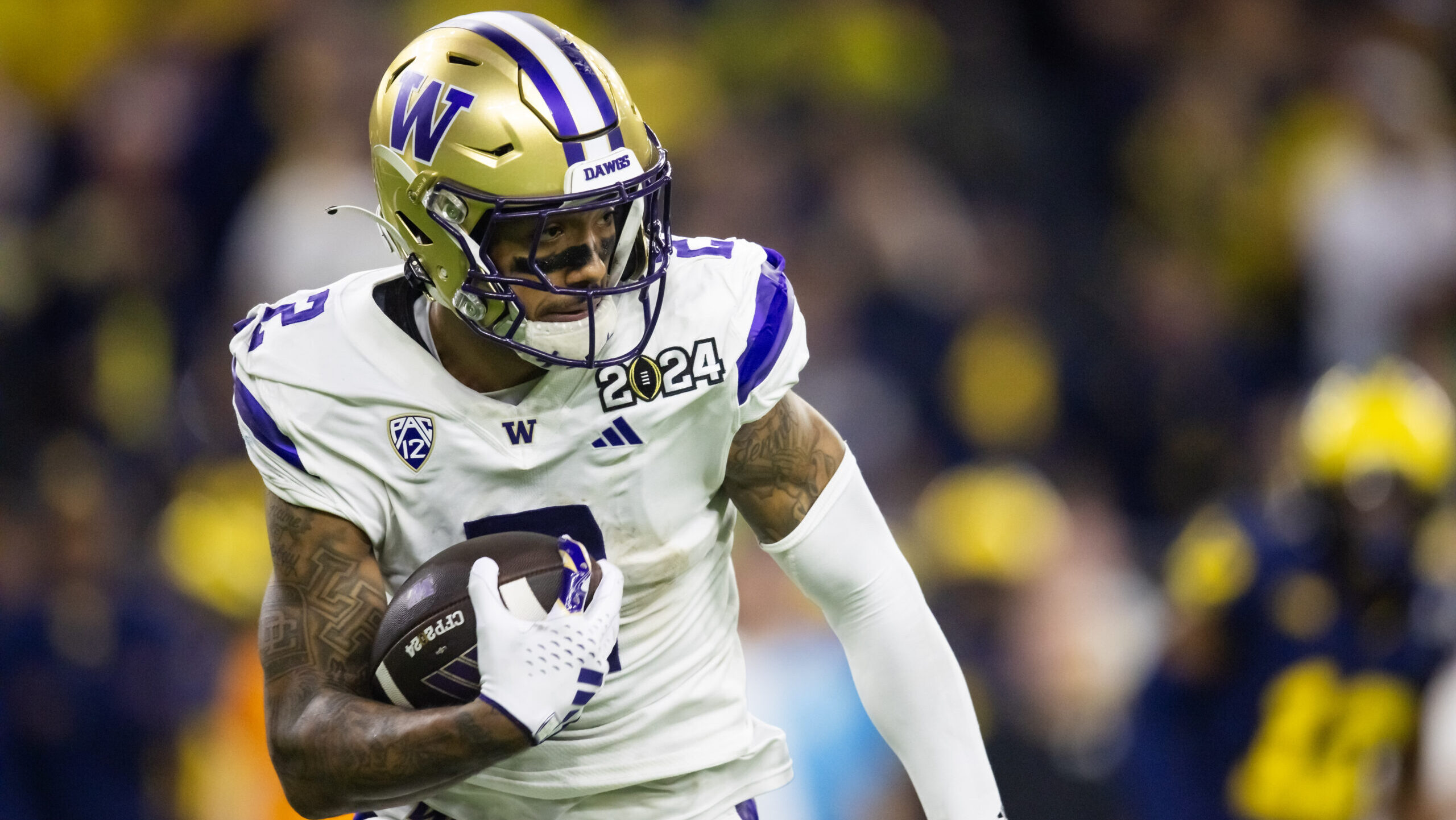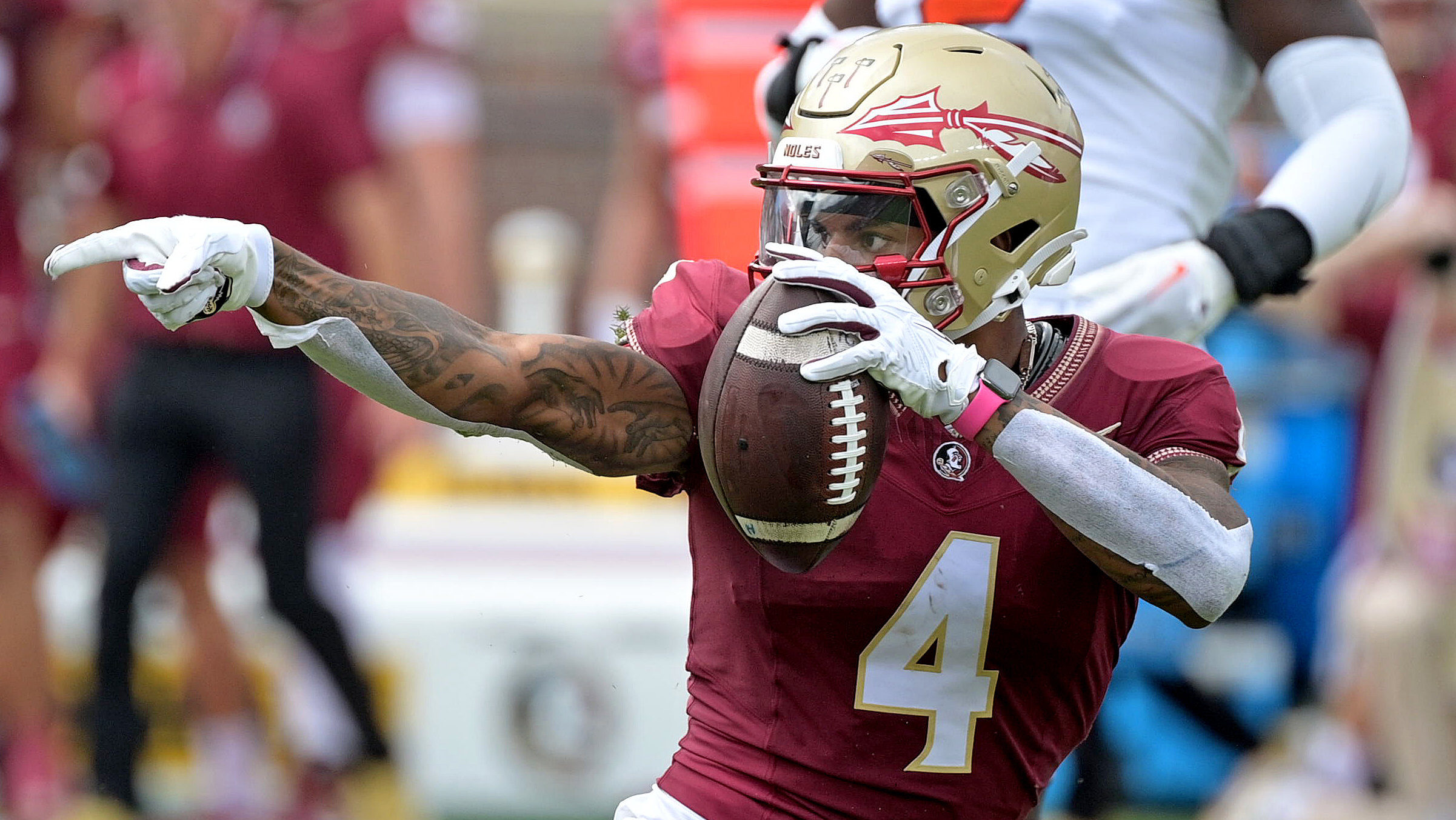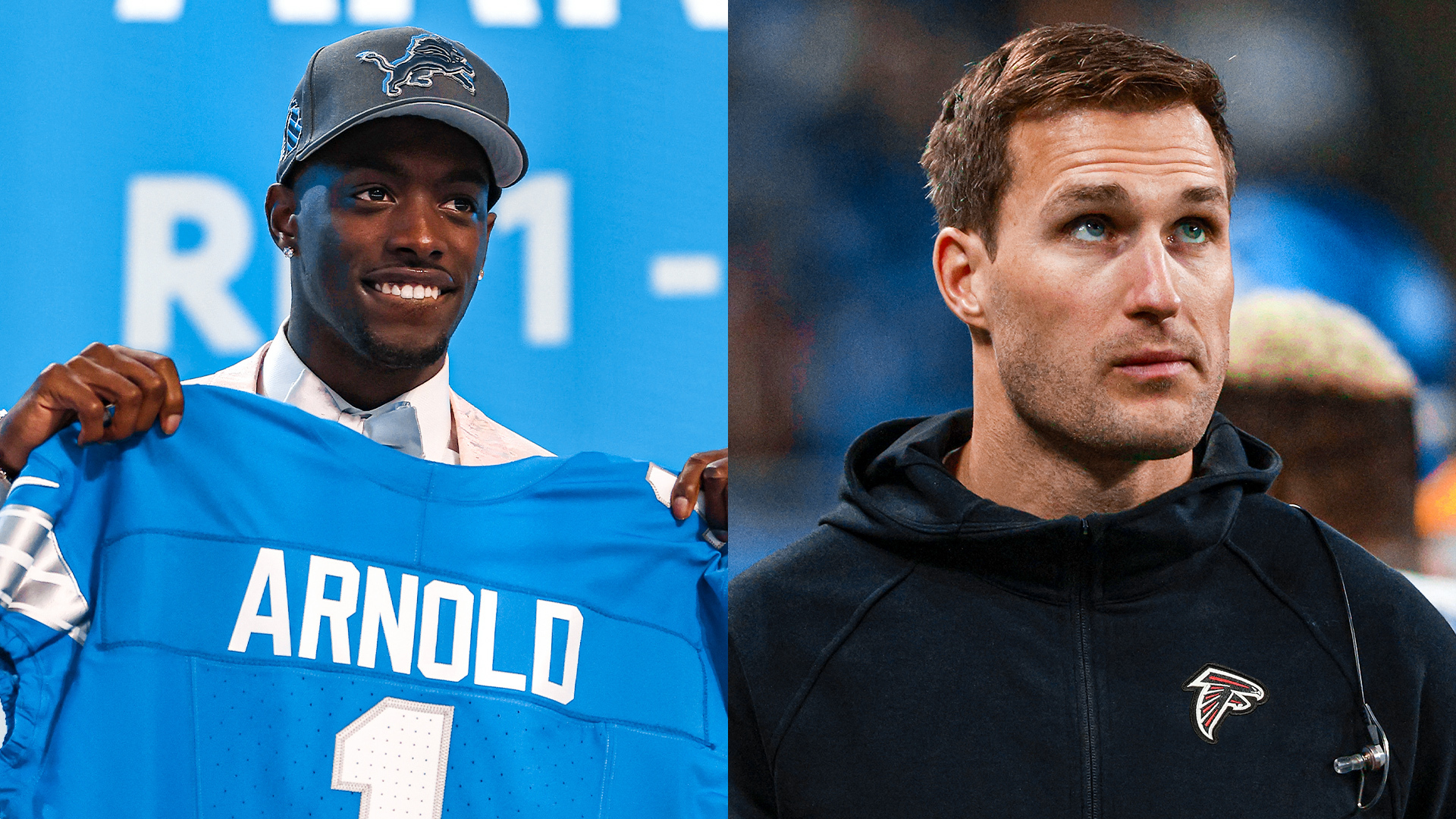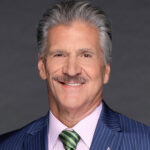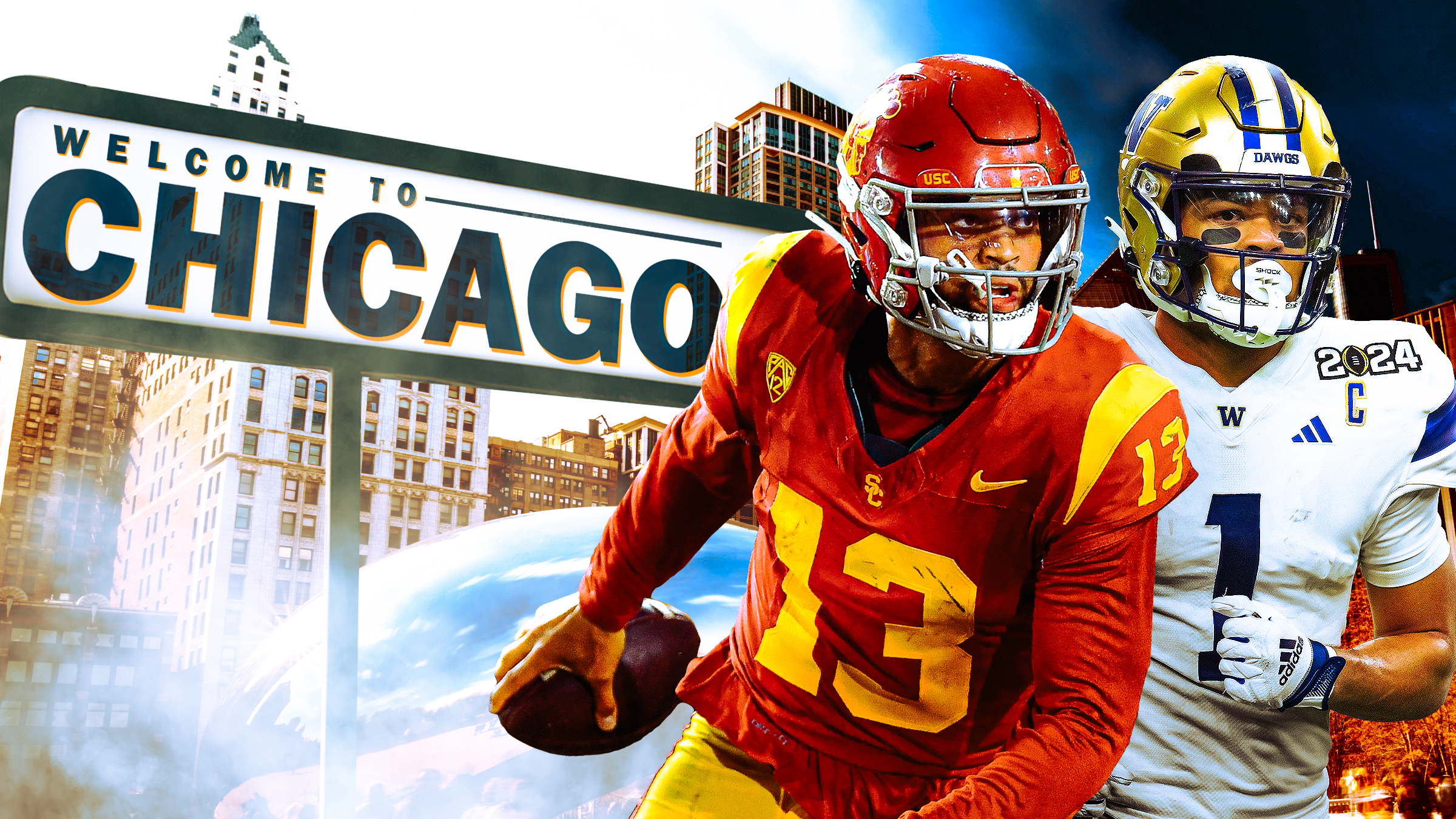Analysis
7/23/22
8 min read
NFL Insiders on the Challenges of Adding a Quarterback Late in the Offseason
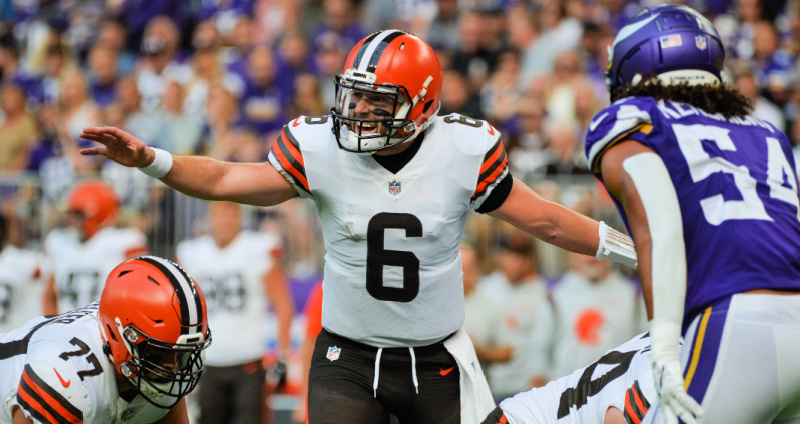
Playing quarterback in the NFL is incredibly difficult. Doing so as a last-minute roster addition is even harder. With the recent Baker Mayfield trade still fresh on the minds of NFL personnel and fans, The 33rd Team took the opportunity to ask our experts about what it's like and what challenges arise when a player has limited time to get practice reps before seeing game action at the quarterback position.
Former Jets GM and Dolphins EVP Mike Tannenbaum started the discussion by talking about the three times he experienced this in his career, starting with when the Jets brought in Vinny Testaverde during his time with the team:
“We signed him after he got cut by Baltimore. He started out as the backup to Glenn Foley, and after the second game Coach Parcells made him the starter and we went to the championship game. It was remarkable to see a guy like Vinny, who had had an up and down career up until that point, literally have an MVP career from then on.
“The coaching staff did an incredible job, and after two games he was clearly the best guy. They may have kept it a little bit simple at first, but they really got him up to speed fast and he had a great connection with [Wayne] Chrebet and Keyshawn Johnson.”
According to Tannenbaum, it was a similar story when the Jets brought in Brett Favre. He gave a great deal of credit to then offensive coordinator Brian Schottenheimer, saying “He did a great job of simplifying the offense initially and then really ramping it up as we went along.”
Tannenbaum had to go through it again for a third time when he was with the Miami Dolphins and Ryan Tannehill went down with a torn ACL:
“We brought Jay [Cutler] in, who had worked with Adam Gase before, and it was again one of those things where we tried to get him up to speed as quickly as possible. The offensive language was basically the same, but we definitely had some growing pains to get him up to speed with our skill players.”
Chuck Pagano echoed those sentiments and supported his thoughts with the example of Jacoby Brissett taking over the starting job after being with the team for a single week:
“He was a great kid and worked his tail off, but he was behind the eight ball from the jump. We were very very limited, but that game plan sheet grew as the weeks went by.”
Tannenbaum finished with his own thoughts on how the Mayfield situation might play out in the coming weeks:
“None of those situations were ideal, but you make the best of it. Two of the three we actually ended up having a really good year with Testaverde and Favre. They definitely present their challenges, and I’m sure Baker Mayfield and Sam Darnold will compete, but I’m sure Mayfield will win the job. I think there's a real intangible of teammates and the connection, and the reps you get from OTAs and training camps.”
Rich Gannon chimed in with his own thoughts on these kinds of situations:
“I think every situation is different. I think the ones that got in town sooner rather than later like Matt Ryan, Russell Wilson, and even Carson Wentz, are going to be a lot more fluid and a lot better because they’ve had an opportunity to get reps and they’ve been there for the OTAs and the mini-camps. They've gotten to know their teammates and know the coaches and get a good sense of the system. I also think the coaches get a better feel for who they are and what they do and don’t do well.”
Moving on to the Carolina situation specifically, Gannon said:
“You just got Baker Mayfield who hasn’t been able to do much physically, and it's going to be a scramble I think for Ben McAdoo and that staff to just get him up to speed, figure out who he is, what he does well, and what he likes. Also, for him to get to know his teammates, know the protections, and the concepts.”
Gannon believes that being in a similar offense is a huge benefit, and gave a personal anecdote about his own experience with Norv Turner coming in as a new head coach during his time in Oakland:
“I had the entire offseason with Norv. I was there every possible day I could be there. We played Pittsburgh week one, and I was absolutely beside myself and not feeling completely comfortable. Norv’s system was completely different, and we hadn't had enough conversations and dialogue…It takes a long time, and you have to worry about quarterbacks that are flying by the seat of their pants as they get ready to go to training camp.”
Hugh Millen supported Gannon’s thoughts on being in a similar system through his own experiences in the NFL and said, “If you have experience in that offense, that's the most critical thing.”
“Most offenses share the same plays,” Millen continued, “and I think that at least 80% of the playbooks are the same. If you look at a playbook and there's a team that really specializes in something, if you go to another team, they probably have that scheme. The difference comes when it's on page three of the playbook or page 53 of the playbook. That's part literal and part figurative. That expresses how many reps of those plays you are getting in practice, in 7-on-7, and 11-on-11.”
He went on to explain how teams will have the exact same plays in their playbook. They may have different names for the same play, but they have the same plays, and one team simply runs it far more often than the other.
“When you’re talking about these guys moving around, particularly late in the offseason, it's really important to think about what system they have been exposed to and how similar is the system that they’re going to.”
Gannon then backed up Millen’s thoughts with another anecdote about when he first arrived in Washington:
“I got traded right after training camp in ‘93…The team was long in the tooth, and they were all banged up…I literally got there on the last day of training camp. I spent maybe the first six weeks of the season in the quarterback meeting room with Rod Dowhower, Mark Rypien, and Cary Conklin. I didn’t want to disrupt the meetings because Mark was getting ready to start early in the season, but I had tons of questions and I had nowhere to learn it…It's not an ideal situation, it's a horrible situation. The coordinator is trying to figure out who this guy is, what they can call, what he has history with. It's terrible for the quarterback who's going through it because he’s not comfortable.”
Mark Schlereth was on that ‘93 Washington team with Gannon, and he added his own thoughts from a teammate’s point of view: “For me one of the big things is K.I.S.S. (Keep It Simple Stupid).”
Long-time quarterback coach and offensive coordinator John DeFilippo added a simple thought that he feels is the most important part of adding players late and integrating them into a system:
“I think as a coach you have to be flexible when you sign these guys late.”
Tannenbaum asked Mike Martz about his experience coaching Kurt Warner on short notice, to which he replied:
“The biggest issue to me with quarterbacks, particularly new guys, is protections. We took them out of the protection game completely and had them listen to the center. All he’s got to do is get the ball, get back, and depending on the coverage where he is going to start his reads. We didn’t have a whole lot of reads, so the read progression stuff wasn’t very lengthy. Just the mental part of it and not having to think about where the ball has to go is huge when you get up to the ball. And then if you can eliminate all the protection stuff it just simplifies everything for them. That's what we ended up doing, he never called any protections.”
Tannenbaum followed up with a simple question: “Was there a moment where you knew you had something really special in Warner?”
Martz replied:
‘We felt like he could be a solid starter when Trent [Green] went down, however, the first 7-on-7 that he threw, he threw eleven balls and all eleven didn’t go anywhere near the receiver that he was throwing to. Marshall Faulk stepped up and said’ Coach, do you mind if I say something to him?’ I said he could go right ahead and do it. He got the guys together and said ‘Kurt we know who you are, and we know you’re a good player. You don’t have to worry about anything, we’ve got your back. Just do what you do. You got this.’
“From that point on the ball didn’t touch the ground. We went out that first week in Baltimore, and he threw three picks in the first half, then came out in the second half and was just ridiculous. I think that's what separates the good ones from the great ones. During a game to have such a horrific half and come right back and be lights out in the next half.”

